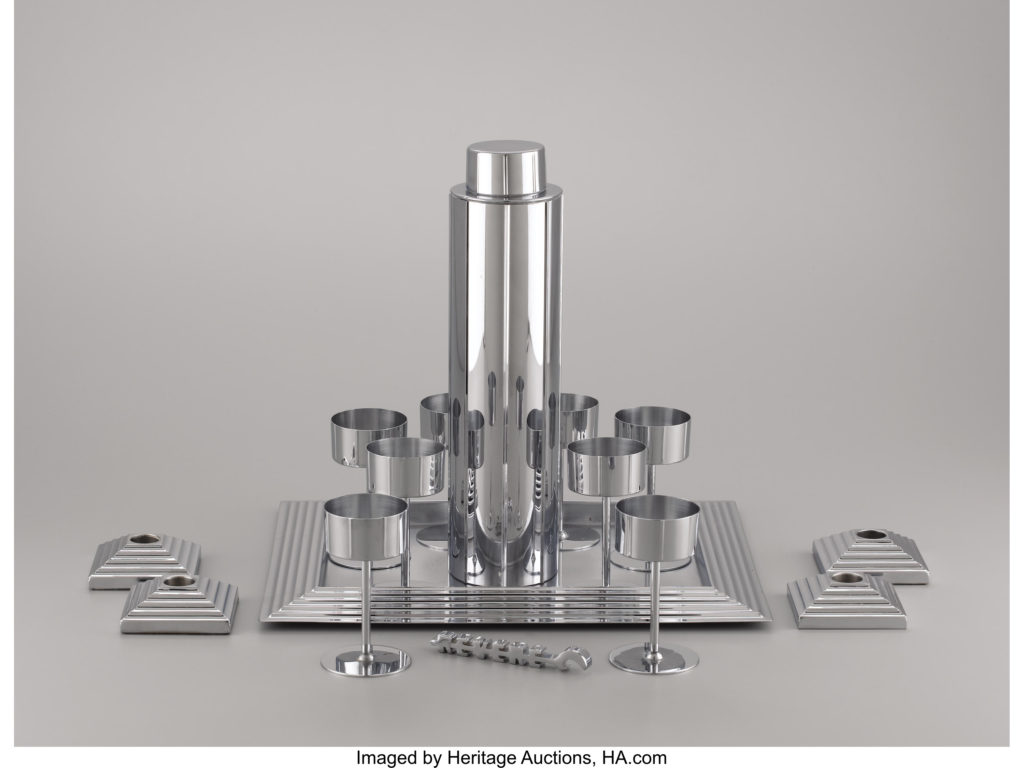
By Jim O’Neal
In Walter Isaacson’s biography of Steve Jobs, he devotes a chapter (12) to the evolution of Job’s lifelong obsession with design after listening to his father’s habit of describing the styling intricacies of various cars. It includes brief periods of infatuation with Sony, flirting with the aesthetically sublime Zen Buddhism, Porsche (not Ferrari), rectangles with rounded edges (which drove the Apple team crazy), and, finally, the power of sleek (not slick), thin, clean and (above all) SIMPLE.
Jobs bemoaned the fact that there were no towering figures energizing the world of industrial design the way that Raymond Loewy (1893-1986) and Herbert Bayer (1900-1985) – the last living member of Bauhaus – had done. Especially not in Silicon Valley.
This was certainly not true in September 1935, when a New York Times critic wrote about a stage play in New Haven: “Meeting the scenic requirements of the play called for ingenuity, inspiration and a superior sense of the practical.” This stage designer did not foresee that his design sense would have a far more pervasive effect on everyday American life than he ever could have had as a stage designer. What the critic recognized was a “superior sense of the practical” – that would be obvious throughout the rest of this designer’s career.
His name was Henry Dreyfuss (1904-72), one of the pivotal figures in the emergence of industrial design.
Dreyfuss would move to center stage in the comparatively new discipline of industrial design, where participants were energized by the belief that anything could be improved by design … with the possible exception (perhaps) of the common egg. They would bring this supremely confident attitude to improving the design of a typical door handle as they would the interior of Air Force One.
Shape, color, utility, tactility, materials, even whimsy. All could be brought to bear as needed.
Dreyfuss’ work would influence everything from airplanes to alarm clocks, from locomotives to telephones (personally, I thought his “Princess” phone was a clumsy, unstable pink dud), and thermostats to John Deere tractors. Norman Bel Geddes (1893-1958) – a stage designer himself and one of the seminal figures of industrial design – was an early lasting influence on Dreyfuss. One of his precepts held that “the value of form lies in its ability to express significance clearly.”
I’m not exactly sure what that means, but others use the Honeywell thermostat as an example. While its presence became invisible because it became basic to our lives, I think the Honeywell-type thermostat’s longevity has more to do with the fact that it plays its role so well.
I’m more familiar with Loewy, another giant of industrial design who made a statement whose truth seems indisputable: “The most difficult things to design are the simplest. To improve the design of a threshing machine is easy, particularly compared to, say, a scalpel or needle.” Perhaps the complexity of redesigning the simplest things derived from these items already being so close to the essence of their purpose.
Industrial design, at its best, sends powerful signals of speed, of desirability, of sleekness, of sensuality. Much of the energy in industrial designs defining decades was directed toward streamlining or, more accurately, to use Dreyfuss’ word, “cleanlining.” Loewy summed it up: “Industrial design amounts to the shaping of everyday life”… the most inspired of those designs shape it for the better.
Steve Jobs must have embraced this to the fullest since all the Apple products I use seem to have a uniquely superior combination of form and function that I find addictive.
 Intelligent Collector blogger JIM O’NEAL is an avid collector and history buff. He is president and CEO of Frito-Lay International [retired] and earlier served as chair and CEO of PepsiCo Restaurants International [KFC Pizza Hut and Taco Bell].
Intelligent Collector blogger JIM O’NEAL is an avid collector and history buff. He is president and CEO of Frito-Lay International [retired] and earlier served as chair and CEO of PepsiCo Restaurants International [KFC Pizza Hut and Taco Bell].
